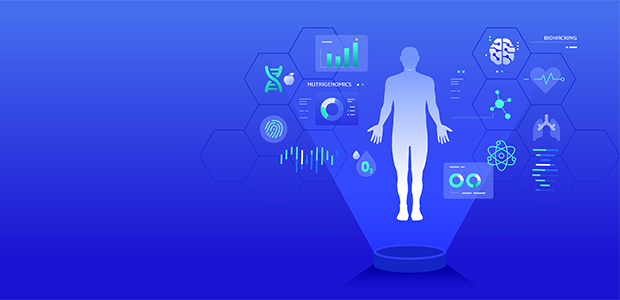
AI startups for the ageing population
By 2050, one in six people worldwide will be over 65. In Europe, it will be closer to one in three. Although this stems from the positive reality of longer lives and better health, healthcare systems built for younger, shorter-lived populations now face the growing burdens of chronic disease, multimorbidity, and long-term care. And while we can celebrate the advancements that have taken us here, the ageing population is certainly an economic challenge that we must adapt to.
Simply adding more beds or more clinicians won’t inherently solve the problem, we have to reimagine what care looks like, and design solutions for diseases of the future.
If we want to age well as societies, we need to embrace intelligent systems that can predict, personalise, and prevent disease. We know AI is not a silver bullet, but well-built technologies that are smart will open new opportunities to meet this demographic challenge.
So what does technology look like in an ageing population? What will we need to support the future healthcare system as it’s predicted right now? As an investor in digital health companies, my role is to address these questions, assess what innovation is needed, and support companies with the capital and expertise to expand across markets.
A more detailed understanding of human degeneration
We already see the attention on AI globally, especially in health, with longevity science and prevention at the top of everyone's agenda. AI will play an important role in combating degenerative diseases as the population ages, while the importance of caring human touch should not be overlooked.
Neurodegeneration is closely correlated with ageing, and with the cases of Alzheimer’s and dementia rapidly increasing, 18.8 million people in the wider European region will be living with dementia by 2050.
Technologies that automate degeneration measurements and biomarkers, improve diagnosis and accelerate treatment will be needed to support the large numbers of people with neurodegeneration. Thankfully, businesses are already working on getting these technologies to patients quickly and developing their AI capabilities even further. Qynapse, a French medtech company, has built a platform that can analyse the evolution of brain deterioration and changes in greater detail; identifying patients most likely to benefit from, or respond to certain treatments.
A 3D visualisation of the brain is produced from whole brain, white matter, grey matter by lobe, cerebellum, and brain substructure measurements – giving clinicians a more accurate understanding of the disease to aid diagnosis and monitoring.
Closely linked to brain degeneration is vision and ophthalmology, an important part of human experience and independence. As we age, vision loss is all too common, with macular degeneration predicted to affect 77 million people in Europe by 2050. Vision loss is difficult to treat, and sadly, degenerative conditions are often diagnosed after irreversible damage is done.
Companies such as Novai are developing AI models that analyse retinal images to detect disease earlier and more accurately. Their technology detects subtle levels of a biomarker called DARC, known to indicate levels of cell activity. From this, they are able to detect sick and stressed cells in the eye earlier, giving more opportunity for intervention. In the same vein as Qynapse, AI will support clinicians to get ahead of the curve – diagnosing, and, importantly, treating disease before irreversible loss.
Technology for caring: looking after the ageing population
Looking ahead to the future of our health systems in light of a new population demographic, there’s an important aspect to consider – how we care for the elderly population. Despite the attempts to ease the burdens of ageing, there simply won’t be enough beds in care homes to support our ageing population. Caring at home will be a necessity, and new approaches to delivering good care from home will be needed.
Companies like Monka are creating solutions that will help people care for the elderly, and help people live happier lives in their older years. Using a well-designed application, smart-tracking and personalised programmes, they help carers navigate these complex journeys and keep track of vital needs such as food, medications, hydration, posture, sleep, and rest.
Monka also connects people directly to healthcare professionals to answer questions when they need them, easing the responsibility of carers. Looking ahead at the changing population, applications like Monka will become essential and normal aids for families and carers.
Supporting startups designing for the future
Although it’s an exciting time for digital health companies similar to Qynapse, Novai, and Monka, there will be challenges. Navigating regulations and implementing in different care settings will need to happen quickly, 2050 is not far away and given the population dynamics, new AI solutions should already be deployed at scale by 2030. Hospitals, regulators, clinicians, procurement teams, investors and governments will need to work together smoothly. Public awareness and discussion is also important to instil trust in adoption and secure buy-in from the right parties.
The ageing population is a prompt to implement smarter models of care quickly and provides an opportunity for future-proofing on a wider level. Threats such as climate change, food insecurity, infectious diseases and antibiotic resistance are also playing a role in how we approach healthcare. At KELES, we’re passionate about new smart solutions for the future of health, however, the balance between AI tools and human compassionate care must be considered carefully, utilising AI but preserving face-to-face care where it’s needed.
For more startup news, check out the other articles on the website, and subscribe to the magazine for free. Listen to The Cereal Entrepreneur podcast for more interviews with entrepreneurs and big-hitters in the startup ecosystem.

